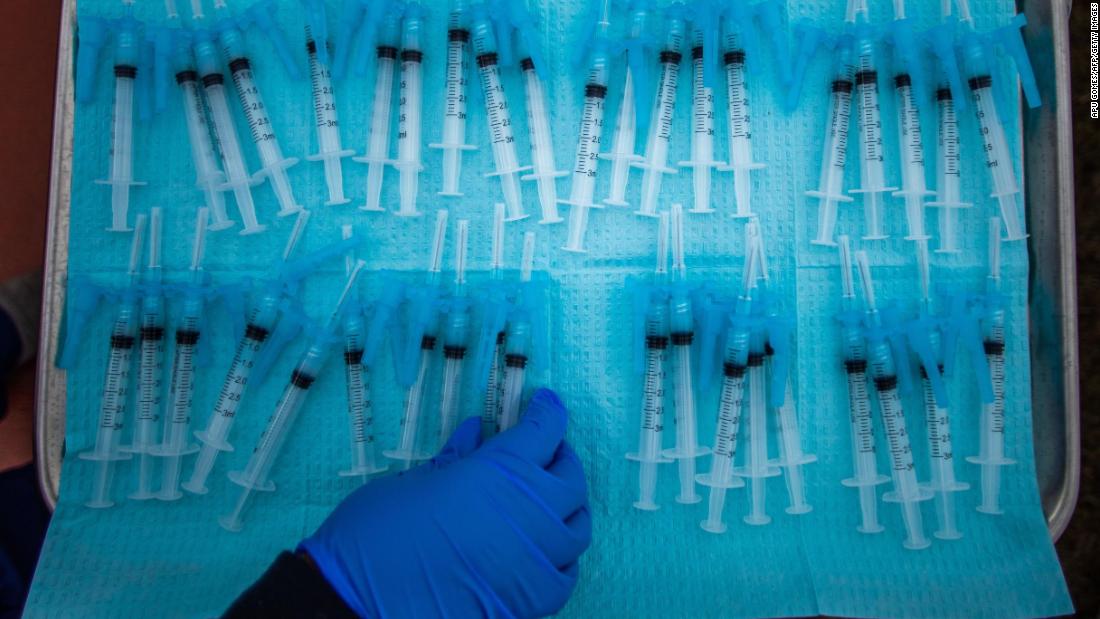You are here
More people are dropping their hesitancy to take Covid-19 vaccines.
Primary tabs
Sat, 2021-03-06 14:56 — mike kraft
 Amount of people hesitant to get Covid-19 vaccine dropping rapidly The release of Johnson & Johnson's Covid-19 vaccine and its partnership with Merck means that President Joe Biden expects the US to have enough Covid-19 vaccines delivered to cover every adult by the end of May. CNN
Amount of people hesitant to get Covid-19 vaccine dropping rapidly The release of Johnson & Johnson's Covid-19 vaccine and its partnership with Merck means that President Joe Biden expects the US to have enough Covid-19 vaccines delivered to cover every adult by the end of May. CNN
 Amount of people hesitant to get Covid-19 vaccine dropping rapidly The release of Johnson & Johnson's Covid-19 vaccine and its partnership with Merck means that President Joe Biden expects the US to have enough Covid-19 vaccines delivered to cover every adult by the end of May. CNN
Amount of people hesitant to get Covid-19 vaccine dropping rapidly The release of Johnson & Johnson's Covid-19 vaccine and its partnership with Merck means that President Joe Biden expects the US to have enough Covid-19 vaccines delivered to cover every adult by the end of May. CNN (CNN) The release of Johnson & Johnson's Covid-19 vaccine and its partnership with Merck means that President Joe Biden expects the US to have enough Covid-19 vaccines delivered to cover every adult by the end of May.
If Johnson & Johnson and fellow vaccine makers Moderna and Pfizer meet their vaccine pledges, the bigger question we may soon be facing isn't whether we have enough doses of Covid-19 vaccines, but whether people will actually take them.
Recent polling suggests a continued drop in the vaccine hesitant population as more and more people get vaccinated in the US.
The past two weeks alone, there were two polls that show just how much vaccine hesitancy has declined. The Kaiser Family Foundation poll found that 55% of adults say they now want a Covid-19 vaccine as soon as possible or have already received their first dose. That's up from 47% in January and 34% in December.
While the percentage of hardline "get it only if required" or "definitely not" has remained fairly consistent at or just north of 20%, the hesitant population of "wait and see how it's working" has dropped by nearly half during the last two months from 39% to 22%.
Axios/Ipsos polling shows a similar trendline. A mere 13% of adults said in September they would get a Covid-19 vaccine as soon as it was made available to them. That jumped to 27% in early December to 43% in early January. Now, 57% say they have already received the vaccine or will get it as soon as possible.
Like in the Kaiser polling, the hardline vaccine resistant population (i.e. people who say they will not get the vaccine or will only get it if forced) is basically the same size now (18%) as it was in September (23%) and early January (19%).
More people who say they will wait a period of time (a few weeks to a year or more) to get the vaccine has decreased rapidly: 64% in September, 51% in early December, 38% in early January and 28% now.
Unfortunately, it will be hard to convince the vaccine resistant population. The fact that this proportion of the population has remained fairly constant (at around 20%) is an indication that even a load of evidence that the vaccines are safe and effective and is our most likely path back to a normally functioning society won't shift them. ...
Country / Region Tags:
General Topic Tags:
Problem, Solution, SitRep, or ?:
Groups this Group Post belongs to:
- Private group -



Recent Comments